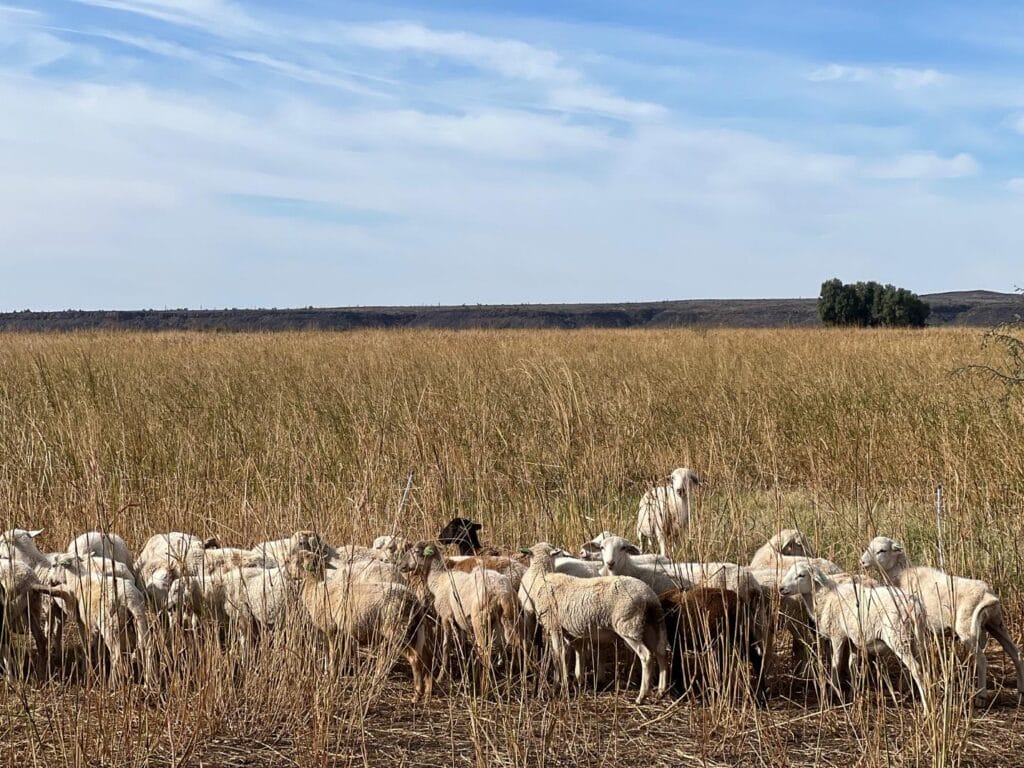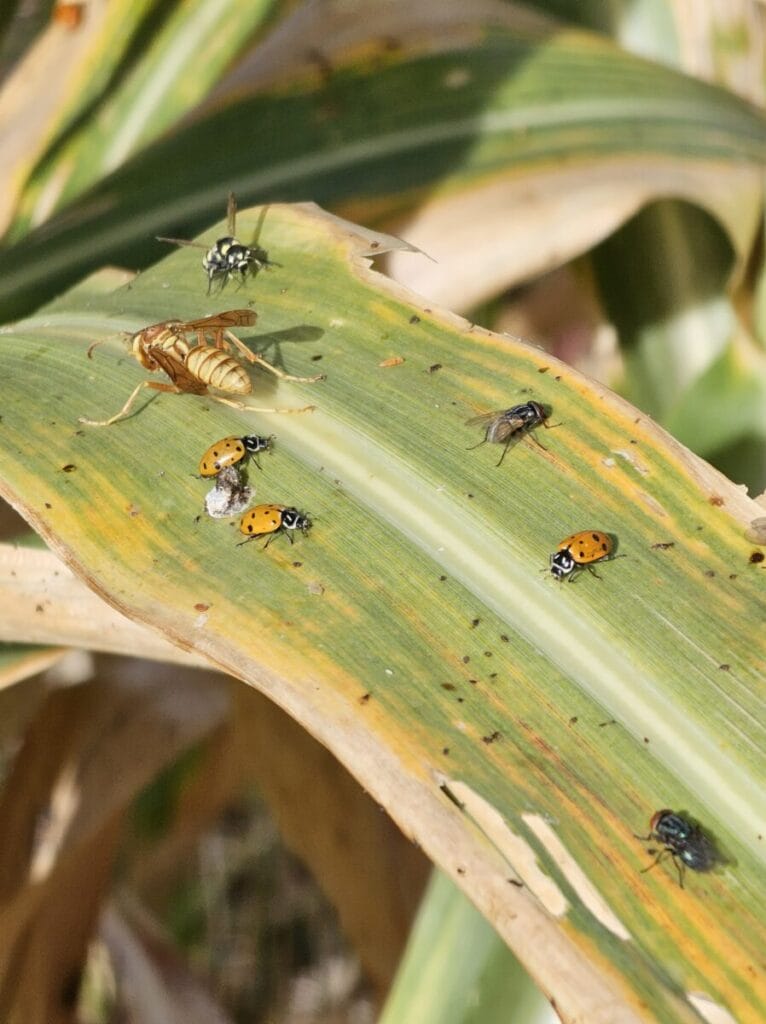By Carolyn Hosannah, ASU sustainable food systems graduate student

Amidst the partisan bickering about how to use agriculture to address environmental challenges sits a voice of reason: Yadi Wang, General Manager of Oatman Flats Ranch, owned by Dax Hansen, 30 miles west of Gila Bend, Arizona. Armed with a revolutionary approach to land management, he led our group on the first tour of the 2023 Arizona Farm Immersive.
Discussions surrounding sustainability, climate change, and environmental activism often happen within a vacuum. In our Sustainable Foods Systems studies, we aim to shift towards dialogues led by instead of about key stakeholders. It provided a nuanced take on personal responsibility and community development. He emphasized the importance of cultivating skill sets for yourself and ones that can enrich your community. After he discussed his background in academia and his Ph.D. in environmental science, a student inquired why he was not working directly in STEM. In response, Wang asked everyone to think, “What impact do you want to have and how will your education help your community?” He followed up by saying: “My research work was so specialized that only a few could understand it, but now I can tell a story at each stopping point to everyone who visits the ranch without confusion. Would it not be better if we could actually build a knowledge basis on a community level rather than being specialized to such a degree?”

With everyone touching the soil, he framed life in terms of the carbon and water cycle. Energy from the sun sets both carbon and water cycles in motion. Both cycles also inform the conservation practices at the ranch. Through their utilization of ruminants to clear and fertilize the land and their commitment to improving soil health, we witnessed an abundance of biodiversity. Diverse plant species include mesquite, sorghum, and even Johnson grass, which is considered a weed for others but not at Oatman Flats Ranch, thrived in addition to plentiful flocks, pollinators like bees, and beneficial insects like ladybugs. Even in the hottest and driest environment, “when we allow all of the living things to live, whether we can see them or not, in a word, that is biodiversity, and we are a part of it.”
Throughout the day, common themes of transformation and positively impacting the community arose. Although the future of agriculture can look rather bleak, Yadi Wang brings hope with an alternative path to farming that restores ecosystems. We can practice cover cropping and abandon pesticides and herbicides. Overall, we can also have a less taxing impact on the soil with minimal disturbance. This approach to treating farms as ecosystems is one that acknowledges, embraces, and respects its uniquely cyclical nature.
We often think of 'land stewardship' as being the care that someone - anyone - takes toward working the land and maintaining it for future generations. But for Yadi Wang and Oatman Flats Ranch, it is more than that. Since the farm is owned by Dax Hansen but managed by Yadi, 'land stewardship' emerges as a unique alternative for those who care passionately about coaxing food from the land but, like the average individual in this country, cannot afford to own the land. On a larger scale, his practice of land stewardship, as opposed to ownership, would allow younger people to reinvigorate the industry with new ideas and innovation while maintaining ancestral and community knowledge. Much of what we now call regenerative used to be common practice, so it is imperative that we increase our connectivity and set a network of farmers back on this path. This would ensure future communities have viable food sources and a healthy ecosystem.
This blog is part of a series from the Swette Center's annual Arizona Food and Farm Immersion, a required course in their two graduate programs. Students tour the state, meeting with farmers, ranchers, entrepreneurs, government staff, and non-profit leaders.